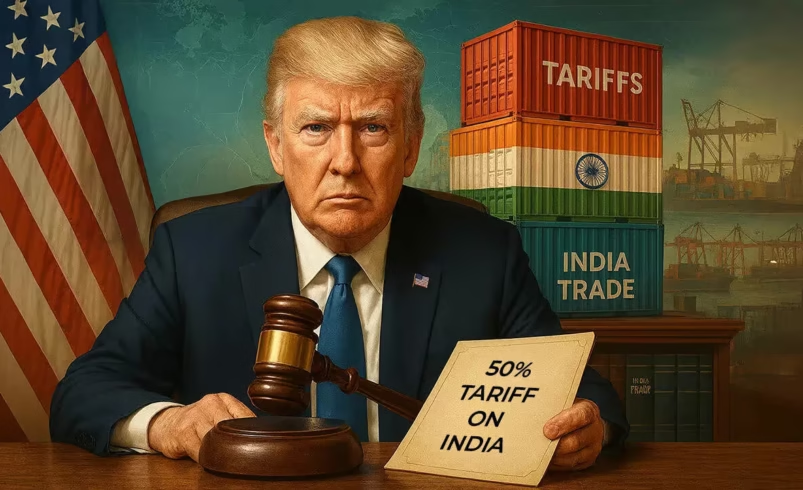US Tariffs Could Cost India Billions, Warns Analyst
- August 29, 2025
- 0

The imposition of US tariffs on Indian goods could result in a significant economic impact, potentially costing India between $55 billion and $60 billion. This development, highlighted by Jefferies’ analyst Chris Wood, is expected to affect key sectors such as textiles, footwear, and jewelry. The tariffs are reportedly a response to geopolitical tensions and diplomatic frustrations involving the United States.
The proposed tariffs are anticipated to have a profound effect on India’s economy, particularly targeting the textiles, footwear, and jewelry industries. These sectors are significant contributors to India’s export economy, and the additional costs imposed by tariffs could lead to reduced competitiveness in the global market. Businesses within these industries may face increased financial pressure, potentially leading to job losses and decreased production.
The tariffs are believed to be a consequence of broader geopolitical issues. Chris Wood suggests that former President Donald Trump’s dissatisfaction with being excluded from mediating between India and Pakistan has played a role in this decision. Additionally, ongoing tensions related to the Ukraine conflict have further strained relations, prompting the US to take economic measures against India.
The introduction of these tariffs could have lasting effects on US-India trade relations. Historically, both nations have enjoyed a robust trade partnership; however, the imposition of such significant tariffs may lead to retaliatory measures from India. This could escalate into a trade dispute, affecting not only bilateral trade but also global supply chains.
Indian industries affected by these tariffs may need to explore alternative markets or adjust their business strategies to mitigate potential losses. Diversifying export destinations and enhancing domestic consumption could be viable strategies for businesses seeking to cushion the impact of reduced access to the US market.
The potential $55-60 billion loss underscores the interconnectedness of global economies and the far-reaching consequences of geopolitical decisions. As countries navigate complex international relationships, economic policies such as tariffs can serve as tools for diplomatic negotiation but also pose risks of economic instability.